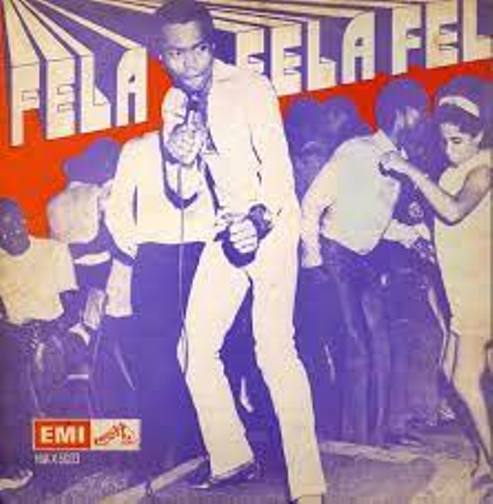LAGOS FEBRUARY 28TH (EWSRANGERS)-In the 20th century, Africa produced several significant political figures. Influential leaders, like Kwame Nkrumah of Ghana, Julius Nyerere of Tanzania, and Nelson Mandela of South Africa, were among them. However, Fela Anikulapo Kuti, a revolutionary musician from Nigeria who promoted Pan-Africanism and spoke out in favor of Africans’ rights, was instrumental in shaping the African political climate of the century.
His groundbreaking music mixed jazz, funk, soul and traditional African rhythms together. His music not only sounds different from anything else, but also has strong political and social messages. Kuti’s music was replete with anti-establishment messages that spoke to the African people, who had suffered under European colonizers for hundreds of years. The legacy of his music and its impact on African culture lives on to this day.
Kuti was born in Nigeria in 1938 to a prominent political family. His mother was a suffragist, and his father was a nationalist leader in the fight against British colonialism. After studying music at a local school, he moved to London to further his musical education, and then, returned to Nigeria in 1963. After his return, Kuti started playing in a band and soon made a name for himself as one of the most prolific musicians of his time.
His first band was called Koola Lobitos, and its members included his brothers Beko and Olikoye Ransome-Kuti. They played a mix of jazz and highlife music, but Kuti eventually transitioned the band to play the style he called Afrobeat. This new rhythm became a huge hit in Nigeria, and Kuti started to gain recognition both nationally and internationally. His music was revolutionary in its fusion of traditional West African rhythms and Western jazz, which spoke to the youth of the time.
Kuti brought the band to the United States in 1969, and spent ten months in Los Angeles. There, he learned about the Black Power movement and began to get involved in political activism.
Pan-Africanism
Kuti was able to bring together people from all walks of life and become a leader of the Pan-African movement by making his music political. He sought to use his music to inspire the youth of Nigeria and throughout the continent. He aimed to make them aware of their shared African heritage and history.
He saw his music as an opportunity to help the people of his native continent and actively promote its ideas. In his songs, he spoke about ending oppression, empowering those who had been marginalized by colonial powers and demanding change.
He advocated for Pan-Africanism through his lyrics and went on to create a musical group, called The African Dreamers, which spread the ideas of the movement around Nigeria. They were a symbol of the fight against oppression, and Kuti became an international celebrity. In 1976, the album “Zombie” established Kuti as a political force to be reckoned with and highlighted the issues of corruption, social injustice and police brutality that were plaguing Nigeria at the time.
“I’m not your average politician,” Kuti said in a 1986 interview with SPIN magazine. “I believe in higher forces. I believe that suffering has a purpose. I cannot suffer like this for no reason. I’m not working for any selfish reason or ulterior motives. I’m working for the improvement of my fellow man.”
Fela Kuti Kalakuta Republic
Polygamy was a key part of Kuti’s vision for the African nation. He saw it as an alternative to the traditional nuclear family. He married twenty-seven wives throughout his lifetime and set up a communal living situation in his home, which he named the Kalakuta Republic.
It was very controversial, and the government attempted to shut down the Kalakuta Republic. However, it was so popular with the people of Nigeria that Kuti and his family were able to resist. Today, Kalakuta Republic is a tourist attraction in Lagos, which pays homage to the legacy of Kuti.
The Life of Fela Kuti
The Nigerian star was often arrested, and his music was often banned by the government because of his involvement in politics. Despite this, Nigerians loved him as he served as an inspiration to people all over the African continent and the African diaspora around the world.
He died in 1997. His funeral was attended by hundreds of thousands of people, who paid their respects to the man who had dedicated his life to fighting for democracy and justice in Nigeria. Kuti was a beacon of hope for many, and despite the government’s efforts to silence him, his music and messages had a lasting impact on the people of Nigeria and in Africa.
In 2014, Kuti’s life was portrayed in the movie “Finding Fela.” It examined the challenges and triumphs of this legendary Nigerian musician.
Travel+Noire










